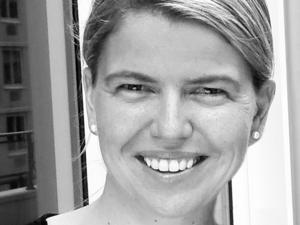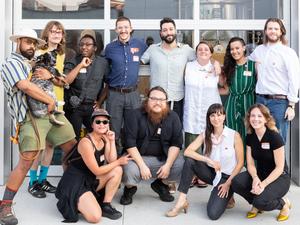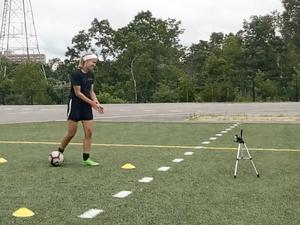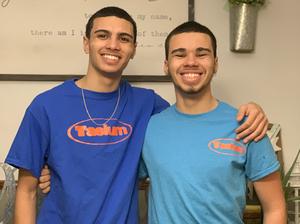
Every two years, Dr. Ian Madom, an orthopedic spine surgeon based in Wakefield, must complete 40 new continuing medical education (CME) credits just to maintain his medical license in the state of Rhode Island.
Each CME credit can take about two hours to complete, give or take, and Madom also has other CME requirements from the American Board of Orthopaedic Surgery.
Doctors, for the most part, are left on their own to complete these requirements. They have to find training videos or conferences to attend, as well as keep tabs on their own progress. That can be a huge burden considering that doctors already have incredibly busy lives.
Frustrated by the messy and antiquated process, Madom teamed up with Dr. George Fernaine, chief of cardiology at New York University Brooklyn, to streamline the process for both doctors and hospitals.
Their startup, MyMOC, has created a mobile platform called MOCingbird that allows individual physicians or large hospital groups to easily determine the various CME requirements, complete those requirements efficiently and monitor their progress.
“The burden associated with CMEs is massive, it's extremely inefficient, it's expensive and it's paper-based,” MyMOC CEO Brad Artery told Rhode Island Inno. “On our platform and on your mobile device, you can see what you need to get to keep your license and certification, and then you can actually take the courses on our site and fill the gap between the two.”
Currently, physicians see the CME process as a broken system.
Artery said most doctors are left to find the courses on their own unless they hire administrative staff, pay hundreds if not thousands of dollars for those courses and often end up spending their free time cramming to complete them.
The bureaucracy also creates problems for hospitals, which need to ensure all of their doctors and surgeons have the proper certifications.
If a doctor is found in noncompliance, Artery said, the hospital that employs that doctor could find itself in the press in a very unflattering light, get shut down until it can prove everyone is certified across the board and potentially not receive certain Medicare and Medicaid reimbursements.
“It’s a high-stakes game for the hospitals, which is why rather than leave it to physicians, they hire clerks and administrators to create the spreadsheets and make sure it doesn’t happen,” Artery said.
With the MOCingbird platform, not only can hospitals and doctors save time and keep an eye on their progress, but instead of having to take a whole weekend off to get things done, they can complete CMEs on their phones in between shifts, during their lunch break or on the train to work.
Madom and Fernaine founded MyMOC after receiving their MBAs from the Yale School of Management in 2017. They also brought on another of their Yale classmates, Ankur Kapadia, as chief technology officer. The trio built the platform using funds raised from friends and family.
Last August, Artery was hired as CEO to build out a team and lead the sales process as the company began to go to market.
The company released MOCingbird as an app in March and was set to begin some pilot programs with large enterprising hospital clients. The ongoing coronavirus pandemic has put that progress on hold.
Artery said the company has used the break as an opportunity to continue to enhance the product and work on some coronavirus-related initiatives.
He said he expects the company to get back into sales mode in a few months, targeting large hospital groups as well as smaller or individual physician practices that do not have the same resources as larger hospitals.
Additionally, Artery said, the coronavirus has also brought out another opportunity in the telehealth space, which looks poised to become a permanent fixture of health care as people try to practice social distancing measures as much as possible to prevent the spread of coronavirus.
“Telemedicine was coming before COVID and has exploded with COVID. Now, it’s here to stay,” said Artery. “We want to play in telemedicine because these doctors would and should have patients in multiple states, but to do this, they will also need to get licensed in multiple states.”








